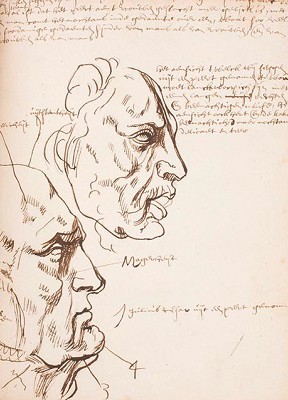
Curtsey of Biblioteca Museo Nacional del Prado
Madrid’s Museo del Prado announced Tuesday the acquisition of the Juan Bordes Library, comprising around 600 historical manuscripts that trace the study of the human anatomy in art. In addition to this major purchase, a copy of a notebook of sketches from the studio Peter Paul Rubens has been donated to the museum. Known as the “Bordes Manuscript,” the sketchbook features two original works by the master painter, and is considered the closest thing to the now-lost original.
Called “one of the most important bibliographic holdings in the world for the study of the human figure,” the library is an archive for hundreds of drawing manuals, treatises, and manuscripts on the study of drawing and painting human anatomy and physiognomy. These works provide a record of the artistic and aesthetic developments in the training of artists from the 16th century to the 20th century, and include works by such significant and varied artists as Rubens, José Madrazo, William Hogarth, and Leon Battista Alberti.
This acquisition follows on the heels of the museum’s €4 million ($4.5 million) purchase of the Triptych of the Birth of Jesus, an early Renaissance work by “the Master of the Zarzoso Triptych” (see Museo del Prado Purchases Rare Renaissance Triptych Worth €4m).
The Juan Bordes Library will join several other specialized libraries in the Prado collection, including the Cervelló Library, centered on art theory; the Correa Libary on printmaking and illustrated books; the José Álvarez Lopera and Julian Gallego libraries on Spanish art; and the Félix de Azúa library on art aesthetics and philosophy.